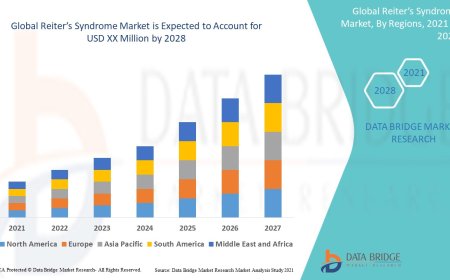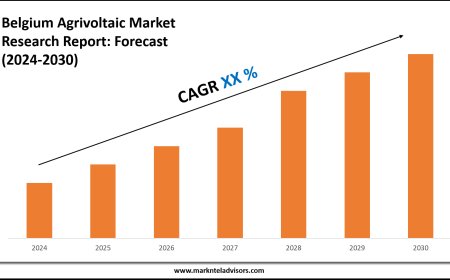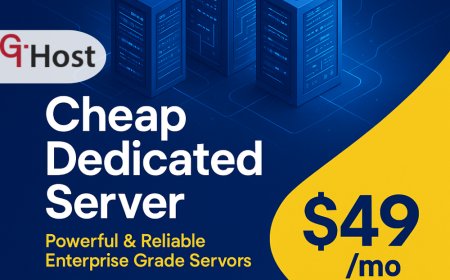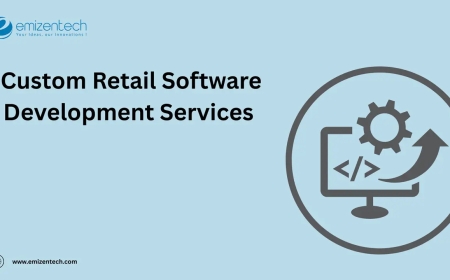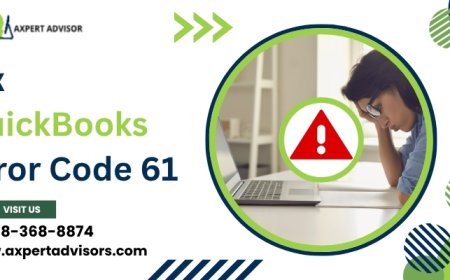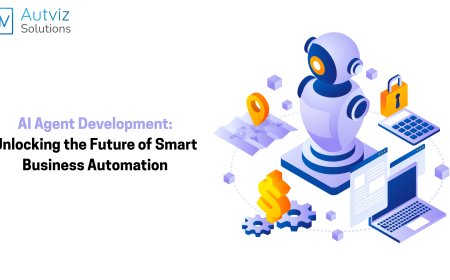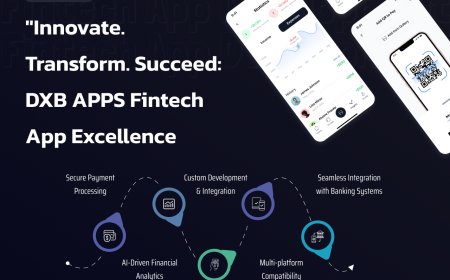How DevSecOps Strengthens Cloud Security and Ensures Compliance in Modern Cloud Environments?
Discover how DevSecOps strengthens cloud security, automates compliance, and protects modern cloud environments from threats and vulnerabilities.

With businesses moving more of their operations to the cloud, the need for strong and reliable cloud security is more important than ever. At the same time, staying compliant with industry rules and regulations has become a non-negotiable part of running a successful business. Traditional security approaches that act as a final step in development are no longer effective in modern cloud environments. This is where DevSecOps comes in as a game-changing practice.
DevSecOps stands for Development, Security, and Operations. It blends security directly into the software development and deployment process. By doing this, businesses can not only build secure applications from the start but also meet compliance needs without slowing down delivery. In this blog, well look at how DevSecOps strengthens cloud security and helps companies stay compliant in todays fast-paced tech world.
What Is DevSecOps?
Basic Understanding of DevSecOps
DevSecOps is more than a set of toolsits a culture and a way of working. Traditionally, software development went through stages: developers built it, operations teams deployed it, and security checked it at the end. This led to delays and higher risks.
DevSecOps changes that. Security is no longer the final checkpointits involved from the first line of code. Developers, security professionals, and operations teams all work together. This integrated approach means problems are spotted early, fixed faster, and security becomes everyones responsibility.
Why It Matters in Cloud Environments
Modern cloud platforms like AWS, Azure, and Google Cloud are powerful and flexible, but theyre also complex. They offer dynamic infrastructure, real-time scaling, and multi-region deployments. These features, while useful, also increase the risk of misconfigurations, security gaps, and compliance violations.
DevSecOps helps manage this complexity. By integrating automated security checks, continuous monitoring, and real-time risk management into the development workflow, DevSecOps provides a safety net that fits the clouds speed and scale.
The Relationship Between DevSecOps and Cloud Security
Addressing the Speed vs. Security Challenge
One of the main benefits of cloud computing is speed. Teams can build, test, and deploy applications faster than ever before. But this speed can sometimes come at the cost of security.
DevSecOps ensures that while teams move fast, they dont break things. By embedding security into every phase of development, the risk of introducing vulnerabilities is significantly reduced. This approach also allows for faster recovery if something does go wrong.
Proactive Instead of Reactive
In traditional security models, teams would wait until the end of the development cycle to run security tests. Thats like checking your parachute after youve jumped out of the plane.
DevSecOps flips that approach. Security checks run automatically from the start and continue throughout. This proactive mindset helps catch issues like code flaws, exposed secrets, or misconfigured cloud services earlywhen theyre easier and cheaper to fix.
How DevSecOps Helps Ensure Compliance in the Cloud
Understanding Compliance in the Cloud
Compliance means meeting the standards and laws set by industries and governments to protect user data and system integrity. Depending on the type of business, these rules might include HIPAA for healthcare, GDPR for data privacy, PCI-DSS for financial data, and others.
These regulations often require strict controls, such as access management, data encryption, activity logging, and regular audits. Ensuring these controls in a cloud environment can be tricky without the right tools and processes.
Automating Compliance Checks
DevSecOps uses automation to stay on top of compliance requirements. Rules and policies can be written as codethis is called Compliance as Code. These coded rules run continuously, checking that systems meet the required standards at all times.
For example, if a developer tries to deploy a cloud storage bucket without encryption, the system can automatically block it or alert the team. This ensures mistakes are caught instantly, and compliance is maintained.
Audit-Ready Systems
Since DevSecOps involves continuous monitoring and logging, it becomes easier to track changes, identify who did what, and produce reports when needed. This is especially useful during external audits or internal reviews.
Logs are organized, timestamps are accurate, and everything is documented in a way thats easy to understand, saving businesses time and reducing stress.
Key Components of DevSecOps That Boost Cloud Security and Compliance
Secure Code Practices
DevSecOps encourages developers to write secure code from the start. Tools like static code analysis and automated testing help find bugs or security flaws while the code is still in development. This reduces the risk of vulnerabilities making it to production.
Continuous Integration and Continuous Delivery (CI/CD)
CI/CD pipelines are a central part of DevSecOps. Security tests, policy checks, and code reviews are built directly into these pipelines. That means every time code is committed or updated, it gets tested automatically, ensuring it meets both security and compliance requirements.
Infrastructure as Code (IaC)
In cloud environments, servers, networks, and other resources are created using scripts instead of manual setup. This is known as Infrastructure as Code. DevSecOps includes scanning these scripts for security risks before theyre used.
For example, a script that creates a virtual server will be checked to make sure it doesnt leave ports open to the internet or set weak passwords.
Identity and Access Management
Cloud systems must ensure that only authorized people have access to specific data or tools. DevSecOps tools help manage roles and permissions in a more organized and secure way.
It also helps prevent over-permissioned accounts, which are a common risk in cloud environments.
Incident Response Planning
Even with the best tools, problems can still happen. DevSecOps includes creating clear plans for what to do during a security incident. These plans can be tested regularly using simulations.
This ensures teams are ready to respond quickly, fix the issue, and get systems back up with minimal downtime or damage.
Real-Life Impact of DevSecOps in Cloud Environments
Reducing Human Error
Many cloud breaches happen because of simple mistakeslike forgetting to secure a server or exposing login credentials in code. DevSecOps automates checks for these common errors, catching them before they become bigger issues.
Faster Remediation
When a security flaw is found, DevSecOps systems can flag it, assign it to the right team, and even suggest how to fix it. Since everything is automated, the fix can be applied faster, sometimes within minutes.
Better Collaboration Between Teams
DevSecOps brings together developers, operations, and security. Instead of working in silos, they collaborate from the beginning. This improves communication, builds trust, and makes the overall process more efficient.
Confidence During Audits
When compliance rules are built into systems and monitored continuously, companies feel more confident during audits. They dont have to scramble to gather reports or prove that their systems are safethe proof is already there, updated in real-time.
Read more:How Integrating DevSecOps Practices Improves the Effectiveness of Cloud Security Solutions
Steps to Start Implementing DevSecOps for Cloud Security
Begin by evaluating your current development and security practices. Start small, perhaps by adding static code analysis or security testing into your CI/CD pipeline. From there, gradually expand to include cloud configuration checks, role management, and compliance scanning.
Train your teams so they understand DevSecOps values and goals. Tools are important, but without the right mindset and collaboration, they wont be as effective. Encourage open communication and make sure everyone understands their role in the security process.
Conclusion
The rise of cloud computing has changed how businesses build and deliver software. But with speed and convenience come new challenges, especially in terms of security and compliance. DevSecOps provides a powerful answer by combining development, operations, and security into a single, collaborative process. It allows organizations to move quickly without losing sight of safety and accountability. Through automation, shared responsibility, and proactive monitoring, DevSecOps makes it easier to protect data, avoid risks, and meet strict industry standards. As more companies rely on cloud platforms, integrating DevSecOps becomes essential not just for survival, but for success. Whether youre scaling a product, launching new features, or working with an on demand app development company, having DevSecOps in place ensures that your business stays safe, compliant, and ready for the future.
FAQs
What makes DevSecOps different from traditional security methods?
DevSecOps integrates security into every step of the software development and deployment process instead of adding it at the end. This helps catch and fix issues earlier, reducing risks and delays.
Is DevSecOps only useful for big tech companies?
Not at all. Small and mid-sized businesses can benefit just as much. Many DevSecOps tools are easy to set up, and the practices can be scaled to fit projects of any size.
How does DevSecOps help with meeting compliance standards?
DevSecOps allows compliance rules to be automated and checked continuously, reducing the chances of violations and making audits easier to handle.
Do DevSecOps practices slow down the development cycle?
When done right, DevSecOps actually speeds things up by automating testing, improving collaboration, and catching problems early in the process.
Can DevSecOps work with any cloud platform?
Yes, DevSecOps can be applied to any major cloud platform like AWS, Azure, or Google Cloud. The tools and principles work across different environments.











